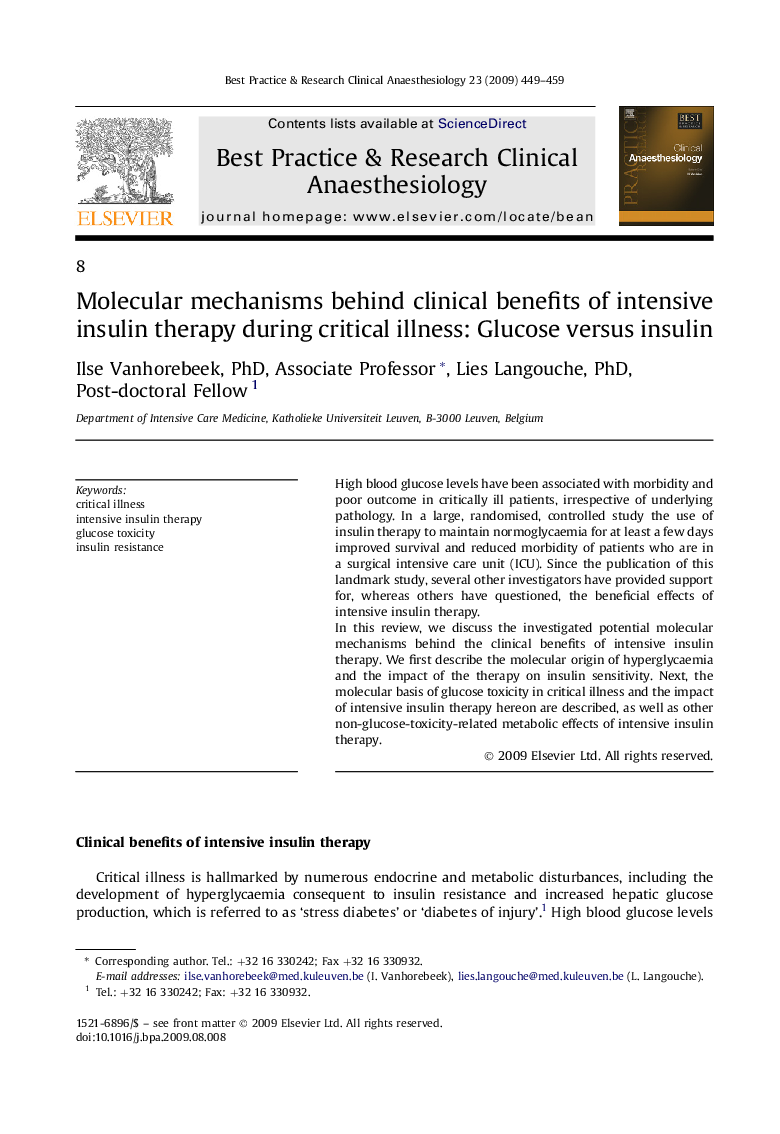| Article ID | Journal | Published Year | Pages | File Type |
|---|---|---|---|---|
| 2748812 | Best Practice & Research Clinical Anaesthesiology | 2009 | 11 Pages |
High blood glucose levels have been associated with morbidity and poor outcome in critically ill patients, irrespective of underlying pathology. In a large, randomised, controlled study the use of insulin therapy to maintain normoglycaemia for at least a few days improved survival and reduced morbidity of patients who are in a surgical intensive care unit (ICU). Since the publication of this landmark study, several other investigators have provided support for, whereas others have questioned, the beneficial effects of intensive insulin therapy.In this review, we discuss the investigated potential molecular mechanisms behind the clinical benefits of intensive insulin therapy. We first describe the molecular origin of hyperglycaemia and the impact of the therapy on insulin sensitivity. Next, the molecular basis of glucose toxicity in critical illness and the impact of intensive insulin therapy hereon are described, as well as other non-glucose-toxicity-related metabolic effects of intensive insulin therapy.
